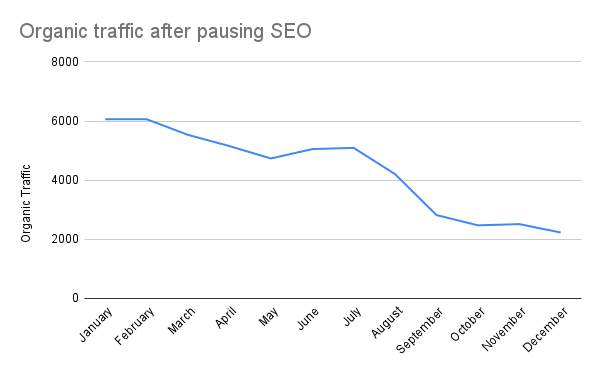Imagine this: you've spent countless hours perfecting your website, curating compelling content, and optimising every element to climb the ranks of search engine results. Then, you decide to hit the brakes on your SEO efforts. What happens next? The consequences of halting SEO can be more detrimental than you might think. This blog post dives into the real impact of pressing pause on your SEO strategy.
WAIT FOR IT
The inevitable drop in organic traffic
When you stop your SEO efforts, one of the first metrics to take a hit is your organic traffic. A study by Ahrefs found that 90.63% of content gets no traffic from Google, underscoring the fierce competition for visibility. Without ongoing SEO, your previously optimised content can quickly fall behind newer, better-optimised competitors.
In the UK, a survey by BrightEdge revealed that organic search drives 53.3% of all website traffic. Therefore, halting SEO can significantly reduce this vital traffic source.
which is caused by..
The decline in keyword rankings
Search engine rankings are not static. When you stop optimising, your competitors who continue their SEO efforts will likely overtake your positions. According to a study by SEMrush, websites can lose up to 30% of their keyword rankings within a few months of halting SEO. For UK businesses, this means a drop in visibility for critical search terms, leading to decreased website visits and potential sales.
A great example can be seen with one of our clients who decided to focus their efforts elsewhere and stop their ongoing SEO work. This graph shows the 12 months after they paused.

TANGIBLE CONSEQUENCES
Reduced market share and revenue
Market share is closely tied to search engine visibility. A decline in organic rankings often leads to a decrease in market share. HubSpot’s research indicates that the top three organic search positions receive 75.1% of all clicks. If your site drops out of these prime spots, your share of traffic—and by extension, your market share—diminishes.
the knock-on effect
Increased paid advertising costs
As organic traffic decreases, businesses often turn to paid advertising to compensate. However, this can be a costly substitute. Data from Google’s Economic Impact Report shows that businesses make an average of £2 in revenue for every £1 spent on Google Ads. While this might seem beneficial, it’s worth noting that organic search typically offers a higher return on investment (ROI) compared to paid search.
LOOKING AHEAD
Long-term brand impact
SEO isn’t just about immediate traffic and rankings; it’s also about long-term brand visibility and authority. A consistent SEO strategy helps establish your brand as a leader in your industry.
When you stop SEO, you risk losing this hard-earned credibility. A report by Searchmetrics highlights that websites with strong SEO foundations are more resilient to market changes and algorithm updates.
SEO NON-nEGOTIABLES:
What to maintain if you have to tighten your belt
We understand that sometimes there’s no option and budget constraints force you to scale back. But even if you have to, it’s crucial to maintain certain SEO activities to minimise the negative impact on your digital presence.
Here are the SEO non-negotiables:
Click below to expand
- Why: Ensures your content remains relevant and easily discoverable by search engines.
- Key Activities: Regularly update meta titles, descriptions, headers, and ensure your content remains keyword-optimised. If any new content goes live, ensure that goes live optimised and it doesn’t fall by the wayside.
- Why: Keeps your website healthy and accessible, preventing technical issues from affecting rankings.
- Key Activities: Maintain site speed, mobile-friendliness, and fix any crawl errors or broken links.
- Why: High-quality, valuable content continues to attract and engage visitors.
- Key Activities: Regularly update existing content, produce new high-quality articles, and ensure all content is user-focused and relevant.
- Why: Essential for businesses that rely on local customers to stay visible in local search results.
- Key Activities: Keep your Google My Business profile updated, manage local citations, and gather customer reviews.
- Why: Strong backlinks are a significant ranking factor and help maintain domain authority.
- Key Activities: Monitor and manage your backlink profile, disavow spammy links, and engage in strategic link-building.
What about some small-scale help?
Pausing your SEO efforts might seem like a way to cut costs in the short term, but the long-term repercussions can be severe. From lost organic traffic and reduced keyword rankings to decreased market share and increased advertising costs, the metrics make it clear: continuous SEO is crucial for maintaining online visibility and business growth.
If budget constraints necessitate a reduction in SEO activities, focus on maintaining the non-negotiables to mitigate the impact. Investing in these key areas ensures your business remains competitive and continues to attract valuable organic traffic, even during lean times. If you’re unsure how best to service your SEO on a reduced budget, get in touch and we can discuss our super flexible maintenance packages.
